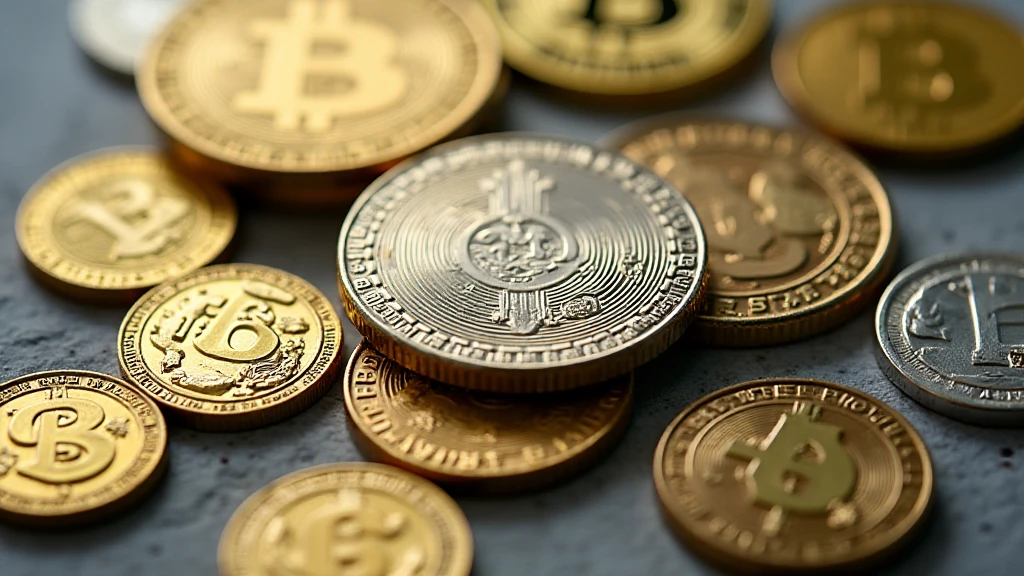Integrating Bitcoin Blockchain in Supply Chain: A Comprehensive Guide
With significant losses like the $4.1 billion attributed to supply chain inefficiencies in 2024, the demand for innovative solutions has never been more pressing. In this landscape, the Bitcoin blockchain emerges as a transformative technology offering robust security and transparency in supply chain management. This article aims to delve into the integration of Bitcoin blockchain within supply chains, emphasizing its practical applications, advantages, and future potential.
Understanding Bitcoin Blockchain Technology
Before we dive into its applications in supply chain, it’s essential to grasp what the Bitcoin blockchain is and how it operates. The Bitcoin blockchain is a decentralized ledger technology that securely records transactions across a network of computers.
- Decentralization: There is no single entity controlling the network.
- Immutability: Transactions are recorded permanently and cannot be altered.
- Transparency: Every participant can view and verify transactions.
This amalgamation of features makes Bitcoin blockchain a powerful tool for managing supply chains effectively.

Challenges in Traditional Supply Chains
Traditional supply chains face myriad challenges including:
- Fraud: Misrepresentation of goods and documents.
- Increased Costs: Complex logistics leading to higher administrative costs.
- Lack of Transparency: Difficulty tracing goods back to their origins.
These challenges hinder efficiency and profitability, prompting the exploration of blockchain solutions.
How Bitcoin Blockchain Addresses Supply Chain Issues
Integrating Bitcoin blockchain into supply chains can solve many of these challenges:
- Enhanced Traceability: Each transaction creates a timestamped record, making it easier to trace products from origin to the end consumer.
- Reduced Frauds: By providing a permanent record, blockchain diminishes the likelihood of fraud and misrepresentation.
- Operational Efficiency: Automation of processes through smart contracts minimizes manual errors and cuts down on operational costs.
For instance, consider a scenario where a company is sourcing materials from multiple suppliers. By utilizing Bitcoin blockchain, the entire procurement process can be automated and made more transparent.
Real-World Applications of Bitcoin Blockchain in Supply Chains
Various industries are already reaping the benefits of Bitcoin blockchain integration:
- Agriculture: Farmers can track produce from field to table, ensuring freshness and authenticity.
- Pharmaceuticals: Blockchain can safeguard against counterfeit drugs by tracking their manufacturing process.
- Retail: Transparency in product origins builds consumer trust and brand value.
As an example, a Vietnamese agricultural company could utilize blockchain technology to verify the authenticity of their organic produce, thereby appealing to health-conscious consumers.
The Economic Impact of Bitcoin Blockchain on Vietnam’s Supply Chain
Vietnam is witnessing a significant shift in its supply chain dynamics. With a current user growth rate of approximately 35% in the cryptocurrency space, the application of Bitcoin blockchain could enhance local businesses significantly.
- Cost Reduction: By simplifying the logistics chain.
- Increased Exports: Enhanced traceability can make Vietnamese products more appealing on the global stage.
According to a report in 2025, the adoption of blockchain in Vietnam could increase GDP by 4% by eliminating inefficiencies.
Future Trends: Bitcoin Blockchain and Supply Chain Auditing
Looking ahead, one emerging trend is the integration of blockchain with auditing processes:
- Blockchain can simplify compliance with regulations.
- Smart contracts will automate verification processes, streamlining audits.
This makes Bitcoin blockchain an invaluable asset for companies aiming to enhance their auditing processes.
Security Standards in Bitcoin Blockchain
As companies increasingly rely on Bitcoin blockchain, maintaining security standards is paramount. Adopting best practices ensures data integrity:
- Encryption: Protect sensitive information.
- Access Control: Limit access to authorized personnel only.
Understanding these tiêu chuẩn an ninh blockchain is crucial for companies looking to adopt this technology.
Conclusion
Incorporating Bitcoin blockchain into supply chain management not only addresses longstanding inefficiencies but also sets the stage for a more integrated and transparent future. As companies across the globe, including those in Vietnam, recognize the potential of this technology, anticipations for a revolutionized supply chain ecosystem grow. The future is exciting and filled with potential; anticipating the benefits of these shifts is paramount to staying ahead in the industry.
For more insights on cryptocurrencies and their applications, visit cryptocoinnewstoday.
Author: Dr. Linh Tran, a Blockchain Innovations Expert, has authored over 30 papers in blockchain technology and has led significant projects concerning smart contract audits.





